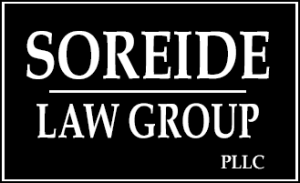Social Networking Sites Can Affect Your Legal Career in Florida
SEBRING – Recently, in a Tampa Bay newspaper article, Brad Dikerson wrote that it boasts over 500 million users and is one of the most popular ways to stay in touch with family and friends in the 21st century.
These sites are accessed in a public domain and, therefore, certain comments that are posted on, say, a county official’s Facebook page, can be subjected to the state’s Sunshine laws.
But one of Facebook’s downsides is the harm it can potentially cause to public officials, those in the court system and also the media.
“Social networking sites can impact open government, and that’s both sides of open government,” said Jim Rhea, director of Florida’s First Amendment Foundation.
Public records include not only documents, papers and letters, but all other material, “regardless of physical form, characteristics or means of transmission,” according to Rhea.
This broad, encompassing definition of what exactly constitutes a public record was added back in the 1990s, as the world was entering the computer age, and electronic communications were as frequently used as the telephone, according to Rhea.
Things that a private resident might post on their Facebook page or a friend’s would ordinarily not have any impact. However, Rhea said, if several county commissioners were all “friends,” and making posts or sending e-mails about county affairs, then they would be in violation of Sunshine laws.
“Even if this is your private page, you’re still dealing with the transaction of official business,” he said.
Rhea added that there have been situations where officials try to delete these correspondences. Again, they would find themselves in violation because those e-mails and Facebook posts are now public records.
The issue of public records again came into the fold, especially since the defendants in Teen Court are all juveniles and, therefore, their identities are kept confidential, according to Germaine.
Jerome Kaszubowski, who works in the local clerk’s office, said he researched the possibility of establishing a Facebook page almost 10 months ago. One of the biggest issues was over public records in relation to social networking sites.
Concerns included what could happen if someone who had access to the clerk’s page got on and left possibly inflammatory comments.
“There’s no telling what kind of junk that people could throw out there,” Kaszubowski said.
Lawyers have certain guidelines they must follow when it comes to social networking sites, as directed by the Florida Bar Association.
They are allowed to have the sites, as long as they are used “solely for social purposes,” according to the Bar’s guidelines.
If a page appears on a site such as Facebook and is used to promote an attorney or firm, it is subject to all lawyer advertising rules, which include no misleading information and no “visual or verbal portrayals that are false, misleading, manipulative or confusing.”
Florida judges are a different matter. In November, a Judicial Ethics Advisory Committee of the Florida Supreme Court issued opinions on a number of issues related to social networking sites.
One of those was whether a judge may add attorneys as “friends” on his or her social networking site, and whether lawyers could, in turn, add them.
The committee said no on this issue.
In reviewing it, the committee found that by judges adding attorneys as Facebook “friends,” they would be in violation of one of the court’s canons, according to the opinion dated Nov. 17, 2009.
That canon states, “A judge shall not lend the prestige of judicial office to advance the private interests of the judges or others, nor shall a judge convey or permit others to convey the impression that they are in a special position to influence the judge.”
In its opinion, the committee thought that judges having lawyers as friends on their social networking site would give the impression, “that these lawyer ‘friends’ are in a special position to influence the judge.”
An evolving medium
While there are numerous advantages to social networking sites, those in positions of governing, judging and newsmaking have to be increasingly careful that they adhere to all rules relating to public records and public information.
As more and more users flock to sites like Facebook, those rules will continue to evolve and what is considered public and private information will undoubtedly change.
Soreide Law Group represents those seeking admittance to the Florida Bar, and existing lawyers, for both investigative hearings and formal hearings in front of the Florida Bar. For more information about our services please visit: www.floridabarhearing.com or call (888) 760-6552.
